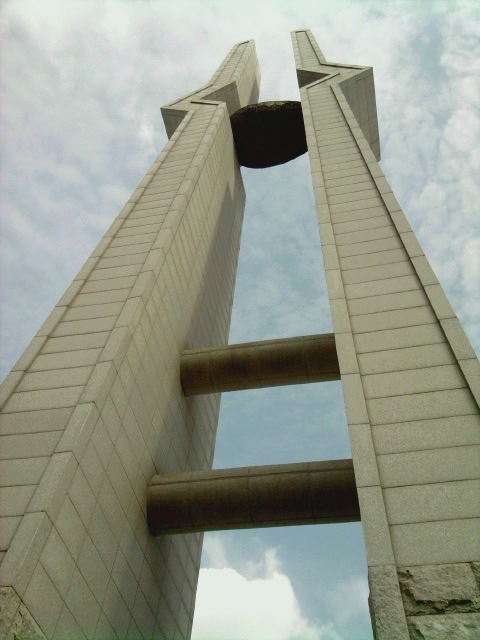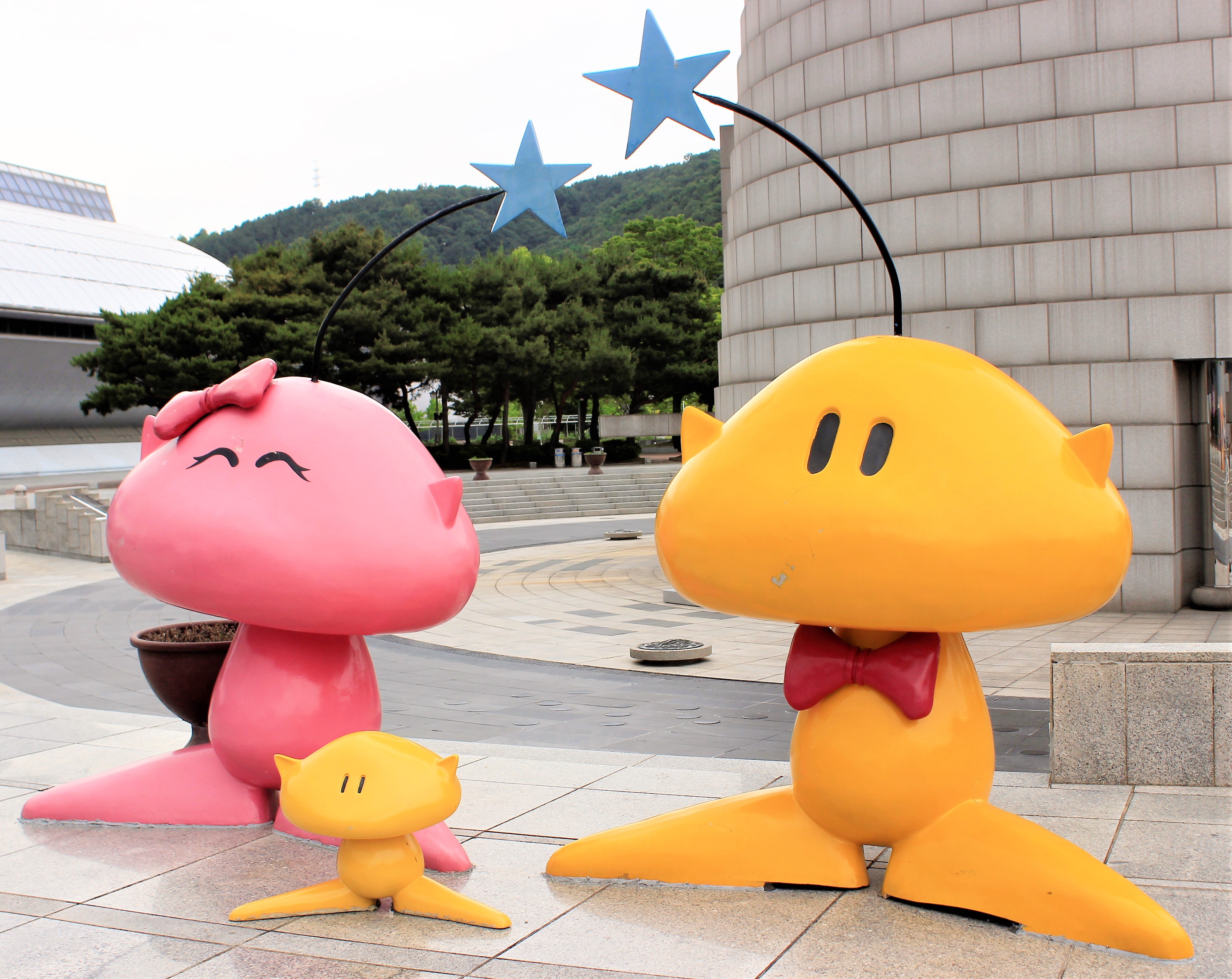|
Korea TESOL
Korea TESOL (KOTESOL, ) is the largest multicultural English teachers association in South Korea, organized as a nonprofit scholarly/professional society under the National Research Foundation of Korea and local tax laws since 1993 (initially formed in 1992).Kang, S-w. (2007-10-23)English Teachers Gather in Seoul ''The Korea Times''. Retrieved 2019-01-22. Overview Korea TESOL is a South Korea based multi-tiered membership organization with regional chapters and nationwide operations such as conferences, publications and Special Interest Groups (SIGs). All memberships are "national" in scope: members can participate in any local or national event with the same membership benefits (discounts), although 50% of their dues are targeted to a member-selected regional chapter. KOTESOL's slogan "Teachers Helping Teachers" is based on an orientation to collegial teacher professional development, including novice teachers new to Korea (and perhaps without an aim for a career in teaching) un ... [...More Info...] [...Related Items...] OR: [Wikipedia] [Google] [Baidu] |
Academic Administration
Academic administration is a branch of university or college employees responsible for the maintenance and supervision of the institution and separate from the faculty or academics, although some personnel may have joint responsibilities. Some type of separate administrative structure exists at almost all academic institutions. Fewer institutions are governed by employees who are also involved in academic or scholarly work. Many senior administrators are academics who have advanced degrees and no longer teach or conduct research. Key responsibilities Key broad administrative responsibilities (and thus administrative units) in academic institutions include: * Admissions * Supervision of academic affairs such as hiring, promotion, tenure, and evaluation (with faculty input where appropriate); * Maintenance of official records (typically supervised by a registrar); * Maintenance and audit of financial flows and records; * Maintenance and construction of campus buildings and gro ... [...More Info...] [...Related Items...] OR: [Wikipedia] [Google] [Baidu] |
Jeonju
Jeonju (, , ) is the capital and List of cities in South Korea, largest city of North Jeolla Province, South Korea. It is both urban and rural due to the closeness of Wanju County which almost entirely surrounds Jeonju (Wanju County has many residents who work in Jeonju). It is an important tourist center famous for Korean food, historic buildings, sports activities, and innovative festivals. In May 2012, Jeonju was chosen as a Creative City for Gastronomy as part of UNESCO's Creative Cities Network. This honour recognizes the city's traditional home cooking handed down over thousands of years, its active public and private food research, a system of nurturing talented chefs, and its hosting of distinctive food festivals. Jeonju is a city with over 1,300 years of history and culture. The city has produced many scholars and has a developed publishing industry. Cityscape File:Sunset In Jeonju South Korea Travel Photography (253309367).jpeg, Jeonju Hanok Village File:Jeonju Gyeo ... [...More Info...] [...Related Items...] OR: [Wikipedia] [Google] [Baidu] |
South Jeolla Province
South Jeolla Province (), formerly South Chŏlla Province, also known as Jeonnam (), is a province in the Honam, Honam region, South Korea, and the Provinces of Korea, southernmost province in mainland Korea. South Jeolla borders the provinces of North Jeolla to the north, South Gyeongsang to the northeast, and Jeju Province, Jeju to the southwest in the Korea Strait. Suncheon is the largest city in the province, closely followed by Yeosu. Other major cities include Mokpo, Gwangyang and Naju. Jeolla Province, Jeolla-do, including both North Jeolla Province, North and South Jeolla, was the first province out of the Eight Provinces of Korea, Eight Provinces system to have its 1000th year anniversary in 2018, as the name 'Jeolla-do' was established in 1018, during Hyeonjong of Goryeo, Hyeonjong of Goryeo's 9th year in power. History Proto Three Kingdoms period During the Samhan period, South Jeolla belonged to Mahan () Three Kingdoms period In the Three Kingdoms period, it be ... [...More Info...] [...Related Items...] OR: [Wikipedia] [Google] [Baidu] |
Gwangju
Gwangju (; ), formerly romanized as Kwangju, is South Korea's list of cities in South Korea, sixth-largest metropolis. It is a designated Special cities of South Korea, metropolitan city under the direct control of the central government's Home Minister. The city was also the capital of South Jeolla Province until the provincial office moved to the southern village of Namak, South Korea, Namak in Muan County in 2005 because Gwangju was promoted to a Special cities of South Korea, metropolitan city and was independent of South Jeolla Province. Its name is composed of the words ''gwang'' () meaning "light" and ''ju'' () meaning "province". Gwangju was historically recorded as ''Muju'' (), in which "Silla merged all of the land to establish the provinces of Gwangju, Ungju, Jeonju, Muju and various counties, plus the southern boundary of Goguryeo and the ancient territories of Silla" in the ''Samguk sagi.'' In the heart of the agricultural Jeolla region, the city is also famous for ... [...More Info...] [...Related Items...] OR: [Wikipedia] [Google] [Baidu] |
Gangwon Province, South Korea
Gangwon Province (), officially Gangwon State (), is a administrative divisions of South Korea, Special Self-Governing Province of South Korea. It is known as the largest and population density, least densely populated subdivision of South Korea. Gangwon is one of the three provinces in South Korea with special self-governing status, the others being Jeju Province and North Jeolla Province, Jeonbuk State. Gangwon is bordered on the east by the Sea of Japan, it borders Gyeonggi Province to the west, North Gyeongsang Province and North Chungcheong Province to the south, and the Military Demarcation Line to the north, separating it from North Korea. In the 1945 division of Korea, the Gangwon Province (pre-1910), historical Gangwon Province was divided in half, and remains so to this day. Pyeongchang County in Gangwon hosted the 2018 Winter Olympics and 2018 Winter Paralympics. Gangwon also hosted the 2024 Winter Youth Olympics. History Gangwon Province was one of the Eight Provinc ... [...More Info...] [...Related Items...] OR: [Wikipedia] [Google] [Baidu] |
Chungcheong Province
Chungcheong Province (; ) was one of the Eight Provinces (Korea), eight provinces of Korea during the Joseon Dynasty. Chungcheong was located in the southwest of Korea. The provincial capital was located at Gongju, which had been the capital of the kingdom of Baekje from 475 to 538. History Chungcheong Province was formed in 1356—during the Goryeo Dynasty—from the southern portion of the former province of Yanggwang. Its name derived from the names of the principal cities of Chungju (충주; 忠州) and Cheongju (청주; 淸州). In 1895, the province was replaced by the Provinces of Korea#Districts of Late Joseon, Districts of Chungju (''Chungju-bu;'' 충주부; 忠州府) in the east, Gongju (''Gongju-bu;'' 공주부; 公州府) in the centre, and Hongju (''Hongju-bu;'' 홍주부; 洪州府; modern-day Hongseong County) in the west. In 1896, Chungju and eastern Gongju Districts were reorganized into North Chungcheong Province, and Hongju and western Gongju Dist ... [...More Info...] [...Related Items...] OR: [Wikipedia] [Google] [Baidu] |
Daejeon
Daejeon (; ) is South Korea's list of cities in South Korea, fifth-largest metropolis, with a population of nearly 1.5 million. Located in a central lowland valley between the Sobaek Mountains and the Geum River, the city is known both as a technology and research center, and for its close relationship with the natural environment. Daejeon serves as a hub of transportation for major rail and road routes, and is approximately 50 minutes from the capital, Seoul, by Korea Train Express, KTX or Suseo high-speed railway, SRT high speed rail. Daejeon (along with Seoul, Gwacheon and Sejong City) is one of South Korea's administration hubs. The city is home to 23 universities and colleges, including KAIST, Korea Advanced Institute of Science and Technology (KAIST) and Chungnam National University, as well as government research institutes, and research and development centers for many chaebols such as Samsung, LG, mostly located in the city's ''Daedeok Innopolis, Daedeok Yeongu Danj ... [...More Info...] [...Related Items...] OR: [Wikipedia] [Google] [Baidu] |
Daegu–Gyeongbuk
Daegu-Gyeongbuk or Taegu-Kyŏngbuk (대구경북, 大邱慶北) is the compound word of Daegu and Gyeongbuk (formally Gyeongsangbuk-do), and indicates both administrative regions in South Korea. The region usually forms the similar political, economic, and cultural area. Daegu is an independent city from Gyeongsangbuk-do and has the same administrative status with its mother province. Both have their separate local governments reporting directly to the national government. In addition to the foremost city Daegu, there are many cities in this region including Pohang the major port and steel industrial city, Gumi the electronics industrial city, Gyeongju and Andong as the historic cities. With a population of 5.1 million, the region has about one tenth of South Korea's population and GDP. It also has the country's third largest metropolitan area centering the Daegu city. Economy History Historically, the region was the birthplace of the Silla Kingdom. With Gyeongju as the ca ... [...More Info...] [...Related Items...] OR: [Wikipedia] [Google] [Baidu] |
Busan–Gyeongnam Area
Busan–Gyeongnam Area, also known as Pusan–Kyŏngnam (PK) is the metropolitan area of Busan, Ulsan, and Gyeongsangnam-do (Gyeongnam) located in southeast South Korea. History Until 1963, before Busan become a "List of special cities of South Korea, Directly Governed City", the whole area formed the Gyeongsangnam-do. Economy Population PK has a population of 7,584,435, as of 2010. It is the second most populated metropolitan area after the Seoul Metropolitan Area. Administrative districts Metropolitan cities *Busan *Ulsan South Gyeongsang Province *Changwon *Yangsan *Gimhae *Jinju *Sacheon *Miryang *Geoje *Tongyeong See also *List of metropolitan areas by population *Seoul Capital Area *Southeastern Maritime Industrial Region References Busan–Gyeongnam Area, {{SouthKorea-geo-stub ... [...More Info...] [...Related Items...] OR: [Wikipedia] [Google] [Baidu] |
The Korea Herald
''The Korea Herald'' () is a South Korean English-language daily newspaper founded in August 1953 and published in Seoul. The editorial staff is composed of Korean and international writers and editors, with additional news coverage drawn from international news agencies such as the Associated Press. ''The Korea Herald'' is operated by Herald Corporation. Herald Corporation also publishes ''The Herald Business'', a Korean-language business daily, ''The Junior Herald'', an English weekly for teens, ''The Campus Herald'', a Korean-language weekly for university students. Herald Media is also active in the country's booming English as a foreign language sector, operating a chain of hagwon as well as an English village. ''The Korea Herald'' is a member of the Asia News Network. History ''The Korean Republic'' ''The Korea Herald'' was first published on August 13, 1953, as ''The Korean Republic''. It was a four-page, tabloid-sized, English-language daily. In 1958, ''The Korean ... [...More Info...] [...Related Items...] OR: [Wikipedia] [Google] [Baidu] |
International Association Of Teachers Of English As A Foreign Language
International Association of Teachers of English as a Foreign Language (IATEFL) is an organisation in the field of English language learning and teaching. It is based in Britain and was founded in 1967 as ATEFL (it became ‘International’ in 1970), by W. R. (Bill) Lee, who also served as the organisation's first Chairman until 1984. IATEFL works primarily to develop networks amongst related institutions and individuals involved in language education as it is relevant to the English language. This includes classroom teachers, administrators of language programmes, teacher trainers/educators, writers and publishers, language assessors and examination bodies, and researchers, for example in applied linguistics. The renowned British linguist David Crystal was patron of IATEFL from the mid 1960s until 2023. He was followed as patron/matron by Jan Blake. IATEFL holds an annual conference in the spring, with key speakers and individual papers, workshops and symposia. Membership is app ... [...More Info...] [...Related Items...] OR: [Wikipedia] [Google] [Baidu] |






